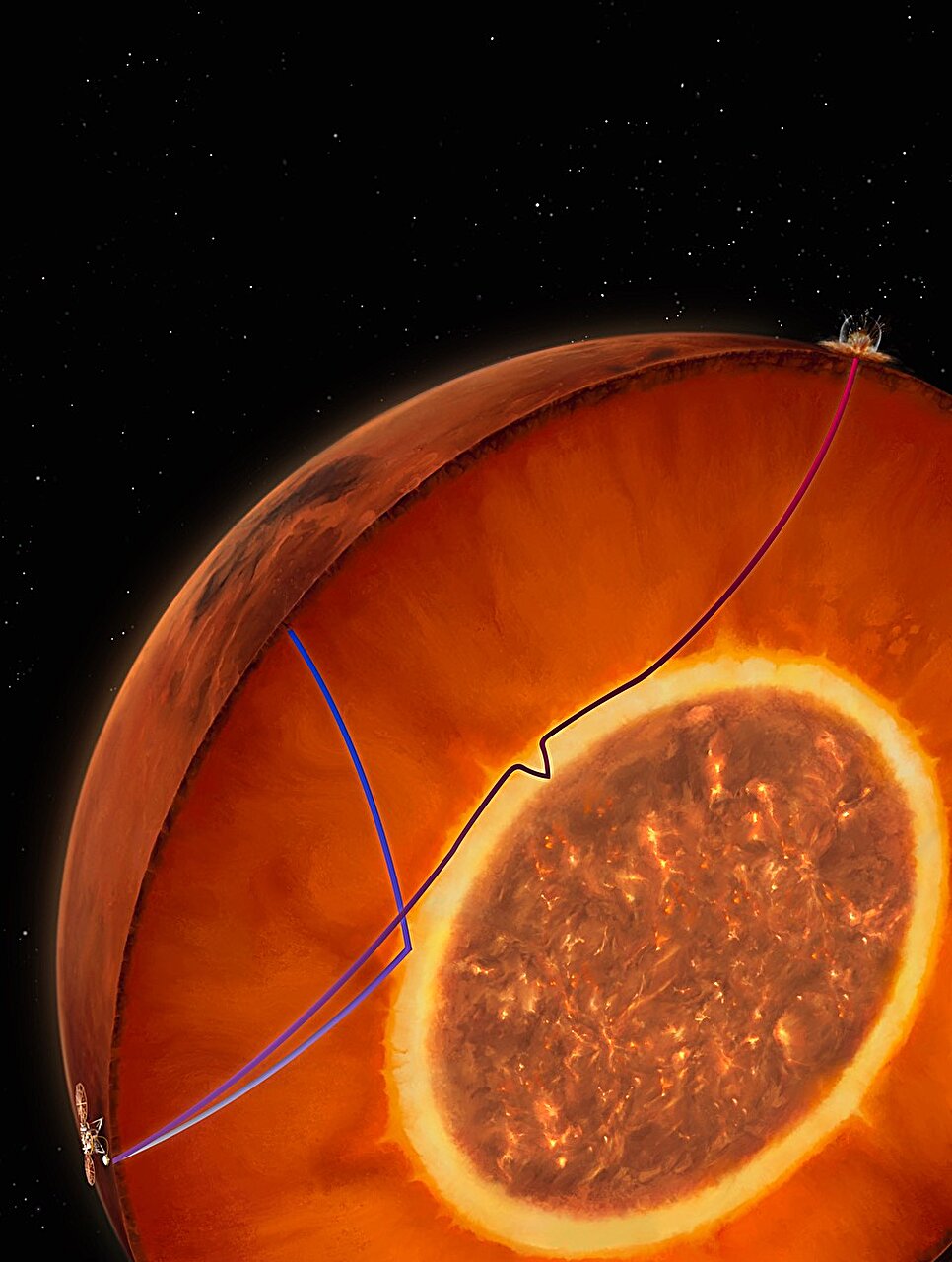Wow, that sounds like a pretty important discovery, especially from a now disabled nasa mission!
What?
What do you mean, “what”. That only now we’ve found enough data from the defunct insight system to determine what’s happened with the core of Mars? That Mars’ core is still liquid? That’s what.
WOW THAT SOUNDS LIKE A PRETTY IMPORTANT DISCOVERY, ESPECIALLY FROM A NOW DISABLED NASA MISSION
WHAT???
Who’s Nasa?
Without a functional protective magnetic field around itself, a terrestrial planet such as Mars would be extremely vulnerable to harsh solar winds and lose all the water on its surface, making it incapable of sustaining life.
Why does solar wind strip water from the planet? For some reason I thought Mars’ smaller size and less gravity was more the reason for it’s state.
Water doesn’t exist in liquid form in low-pressure environments. If the atmosphere gets stripped off, so will all non-ice water.
Those are contributing factors, and the small size could be part of the reason the magnetic field stopped at some point, if the core cools down too fast. But a strong magnetic field like Earth’s will block the fastest parts of the solar wind from hitting the atmosphere. Without that, each particle of solar wind that hits a molecule of the atmosphere can send that molecule out into space, (beyond escape velocity) which adds up over thousands or millions of years to remove most of the atmosphere that was originally there.
Without enough pressure, liquid water will boil even at cold temperatures, and will be part of the atmosphere that is stripped away.
Thank you! I completely forgot about the importance of atmospheric pressure.
IAMNAA but I believe it’s because the winds strip the atmosphere and, without a solid atmosphere for containment, the evaporation of water molecules escapes into space
Yeah something like that, PBS Eons does a good episode on the history of Mars, and PBS Space Time has done a few episodes about Mars too if you’re interested.
“These sources could be energetic impacts or core motion generated by gravitational interactions with ancient satellites which have since then disappeared.”
So are we saying that Earths magnetic field could be a result of having the moon?
“These layers, if widespread, can have pretty big consequences for the rest of the planet,” Lekic said. “Their existence can help tell us whether magnetic fields can be generated and maintained, how planets cool over time, and also how the dynamics of their interiors change over time.”
They think its possible to bring back Mars magnetic field?
Hawt
Without a functional protective magnetic field around itself, a terrestrial planet such as Mars would be extremely vulnerable to harsh solar winds and lose all the water on its surface, making it incapable of sustaining life.
Isn’t this now a discredited theory?
It still doesn’t have a magnetic field, the theory was always that it used to have one which then shut down as the core solidified. The only difference is now we know it not 100% solid yet.
I feel like they’re hinting at the possibility that more heat can possibly radiate out from the core in the future and generate a mantle along with its own magnetic field. I can’t wait to read about what else they discover with this data.
So what you’re saying… checks notes
…Is that we need to drill a hole to the center of Mars and detonate a nuke to heat that baby right back up?






